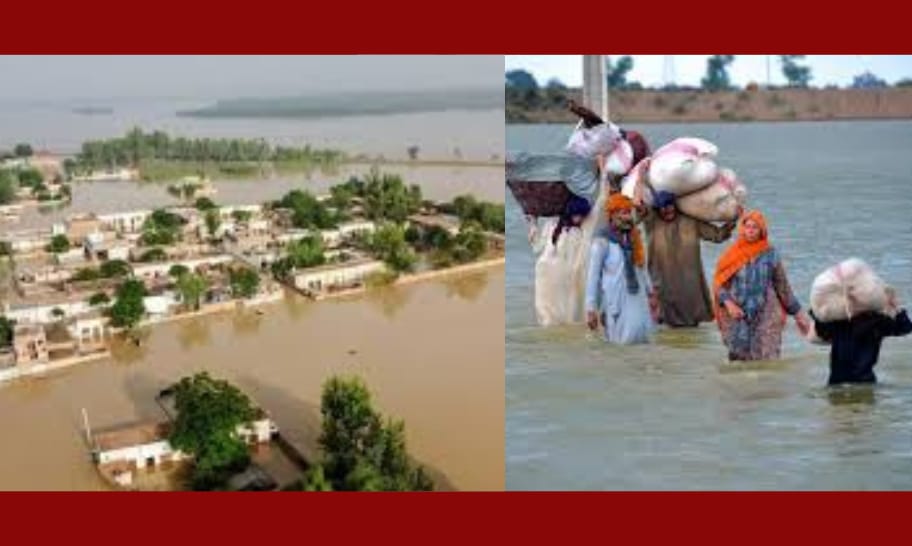Religious fundamentalism is rampant in societies that lack creative and critical thinking in their educational structures, and is often used as a political card in countries like Pakistan.
The recent floods in Pakistan have been wreaking havoc across the country and yet,instead of standing with their fellow citizens in times of crisis, the religious clerics are seeing the situation as an opportunity to propagate their false religious narratives. These clerics have the audacity to claim that these disasters are a result of the sins of people and a warning from Allah Almighty. One might question then, why the Bilawal house,Raiwind and Bani gala, and big cities like Faisalabad, Lahore, and other elite class areas of Pakistan have been spared from the wrath of god? Clearly the citizens of these areas are not any more pious than their fellow counterparts in Balochistan, Sindh and KP.
These religious rhetoric and slogans are used by the political hegemony to divert the attention of citizens from its poor infrastructure management and disaster regulating authorities and are continuously propagated by mainstream media.
The point that I want to make clear is that religion doesn’t stop you from paying attention to improving your poor and sluggish infrastructure for the sake of mankind and humanity.
The prevalent floods have left the cities inundated, with millions homeless, damaging crops and livestock. The impact of livestock and crops are feared to sporadically burst out inflation by raising the prices of staples, meat, vegetables, and milk. Not to mention that just a short time ago, big landowners were saying that they were going to buy the animals at cheap prices in flooded areas, shamelessly profiting off other people’s misery.
Humanity is over.
The flood is a charm of money, bailouts, and remittances for capitalists and elites. These sorts of actions are strongly condemned and strong and strict checks and balances are required to deal with such a parasitical elite.
At the beginning of the 20th century, the engineers clearly mentioned that we couldn’t challenge nature, the perpetual flow of oceans, rivers and lakes, and its continued rise and fall. The only wise option was to avoid making infrastructure in the path of the water.
The owners of hotels turned a deaf ear to all the scientific advice and built their restaurants , enchanted places and entertainment areas which came in the way of the natural flow of waters.This couldn’t have been possible without the involvement of civil bureaucracy and law enforcement authorities.
In copious amounts, slums were living in the dubious and declared land of rivers like Ravi and Sindh; the flood was destined for them. Masses are used to cultivate the crops in the declared spots of rivers in Punjab ,Sindh ,Balochistan, and Khyber Pakhtunkhwa . These fields are usually the most affected and give a large setback in GDP.
Climate change is yet another monster that’s out of the bottle, the cap of which we didn’t open. We are paying the price in the form of heavy rainfalls and extreme temperatures even though our carbon footprint is negligible compared to the developed countries. It is thus the moral duty of the developed countries to help us deal with climate crises, which is a direct result of their carbon emissions.
The effective way to deal with climate related disasters is building proper infrastructure that does not halt the natural flow of water, building dams and equipping disaster management authorities with state of the art technologies.
Mainstream political leader’s hypocrisy is also worth seeing during this catastrophe as they remain busy in their political circus while the masses suffer. The greed for power is visible in their everyday moves; their lack of empathy for the masses that are drowning is disappointing but not appalling.
Hard times require unity and collective struggle from all sections of the society, the kind that we have seen during 2005 (earthquake) and 2010 (floods). Everyone must put all their differences aside and contribute in whatever way possible to provide relief to flood victims.




